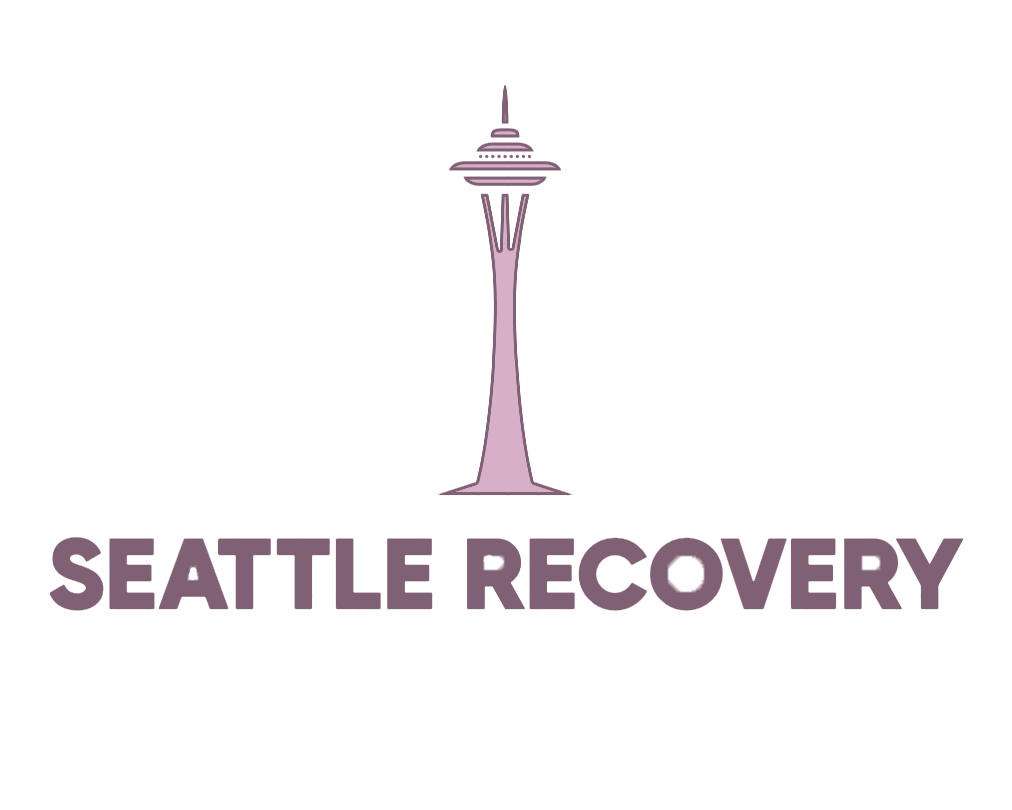
Exploring Alcohol Counseling
Seeking alcohol counseling in Seattle marks a pivotal step in one’s journey towards recovery and wellness. At Seattle Recovery, we are deeply committed to supporting individuals in navigating this journey with compassion, professionalism, and the highest standard of care. Alcohol use disorder (AUD) presents complex challenges, but through personalized treatment plans, we strive to meet each individual’s unique needs.
Our Approach to Treatment
Holistic Treatment Model
Our belief in a holistic approach to recovery means that we look beyond the symptoms of AUD to address the underlying causes of this condition. Incorporating a balance of body, mind, and spirit into our treatment model allows us to foster a sustainable recovery and well-being in individuals and their families.
Evidence-Based Practices
Evidence-based practices, including cognitive behavioral therapy (CBT), dialectical behavior therapy (DBT), and motivational interviewing, form the cornerstone of our alcohol counseling in Seattle. These modalities have been proven effective in treating AUD and offer a solid foundation for recovery.
Services Offered
Seattle Recovery provides a comprehensive range of services tailored to address the multifaceted nature of alcohol use disorder. From the initial detox process to residential treatment, outpatient programs, and aftercare, our continuum of care ensures that individuals receive the support they need at every stage of their recovery.
Why Alcohol Counseling Seattle is Important
Alcohol counseling in Seattle is not just about treating the addiction; it’s about rebuilding lives and restoring hope. The journey to recovery is personal and unique to each individual, filled with its own challenges and triumphs. Our role is to guide, support, and empower individuals as they navigate this path, providing tools and strategies to manage AUD and achieve long-term wellness.
The Role of Family in Recovery
The impact of AUD extends beyond the individual to their family and loved ones. We believe in the importance of including family members in the recovery process, offering education, support, and therapy to heal relationships and build a strong network of support.
Choosing the Right Program
Individual Needs Assessment
Selecting the right alcohol counseling program in Seattle begins with a thorough assessment of the individual’s specific needs and circumstances. Our team works closely with each person to develop a treatment plan that aligns with their goals, preferences, and clinical requirements.
Continuum of Care
Understanding the continuum of care and how it applies to each person’s journey is crucial. We emphasize the importance of ongoing support, from intensive treatment options to outpatient care and relapse prevention, ensuring a seamless transition through each phase of recovery.
Success Stories
At the heart of our work are the stories of individuals who have bravely faced their struggles with alcohol and emerged stronger. These narratives of hope and resilience inspire and motivate not only those currently in treatment but also our team of dedicated professionals.
Getting Started with Alcohol Counseling Seattle
Taking the first step towards recovery can feel overwhelming. Our team at Seattle Recovery is here to make this process as smooth and supportive as possible. From the initial contact, through assessment and treatment planning, we are committed to providing compassionate and comprehensive care.
FAQ
What makes Seattle Recovery different?
Our commitment to personalized, holistic treatment, and our multidisciplinary approach to care set us apart. We pride ourselves on offering a range of services and therapies, all grounded in evidence-based practices, to support the recovery and well-being of our clients.
How do I know if I need alcohol counseling?
If alcohol is negatively impacting your relationships, health, or daily life, it may be time to seek help. AUD can manifest differently in everyone; a confidential assessment with our team can help determine if alcohol counseling is the right step for you.
Can my family be involved in my treatment?
Absolutely. Family involvement can be a key component of recovery. We offer family counseling and support groups to engage loved ones in the recovery process, fostering healing and understanding in relationships.
- Detox Programs
- Residential Treatment
- Partial Hospitalization Programs
- Intensive Outpatient Programs
- Transitional Living Programs
- Alumni Programs
- Relapse Prevention
- Inpatient Programs
- Case Management
- Mentoring Programs
- Family Support
Through our comprehensive approach to alcohol counseling in Seattle, we not only address the challenges of AUD but also empower individuals to build a foundation for a fulfilling, sober life. Our dedication to supporting each person’s unique path to recovery underscores our belief in the possibility of change and the power of resilience.

Which therapy is most suitable for alcoholism?
When it comes to navigating the complex path of recovery from alcoholism, Cognitive Behavioral Therapy (CBT) stands out as particularly effective. This approach helps individuals identify and challenge unhelpful thoughts and behaviors related to their alcohol use. By focusing on practical skills that can be applied to daily life, CBT empowers individuals to make lasting changes. It’s like giving someone a roadmap and the tools they need to take control of their journey. Every person’s experience with alcoholism is unique, and while CBT is highly effective for many, the key is finding a therapy that resonates with the individual’s needs and circumstances. Exploring different therapeutic options with a professional can help pinpoint the most suitable approach for each person.
Can therapy help with alcohol?
Absolutely, therapy can be a cornerstone in the recovery process for those struggling with alcohol use disorder. It’s more than just talking; it’s about learning new strategies for dealing with stress, triggers, and cravings that don’t involve alcohol. Therapy provides a safe space to explore the root causes of alcohol use, such as underlying mental health issues or emotional pain, and addresses these issues in healthy, constructive ways. Moreover, therapy isn’t a one-size-fits-all; it includes a range of modalities like motivational interviewing and dialectical behavior therapy, tailored to fit the individual’s needs. It’s about rebuilding a life where alcohol no longer needs to be the center.
What type of Counselling is best for addiction?
For addiction, a blend of individual and group counseling often yields the best outcomes. Individual counseling allows for a deep dive into personal issues, traumas, and the specific dynamics of one’s addiction, in a confidential and supportive setting. Group counseling, on the other hand, offers a sense of community, shared experiences, and mutual support, which are invaluable for recovery. Specialized approaches, such as Motivational Interviewing, help individuals find the internal motivation to change, while Cognitive Behavioral Therapy provides practical strategies to deal with the challenges of addiction. The best counseling approach is one that respects and addresses the multifaceted nature of addiction, tailored to the individual’s unique needs and goals.
How to prevent alcohol and drug abuse?
Preventing alcohol and drug abuse starts with education and early intervention. It’s crucial to understand the risk factors and stressors that can lead to substance use, such as peer pressure, stress, trauma, and mental health issues. Creating open lines of communication within families, schools, and communities can encourage individuals to speak up and seek help early on. Implementing comprehensive prevention programs that focus on building resilience, emotional intelligence, and healthy coping mechanisms can equip people with the tools they need to resist the temptation of substance use. Remember, prevention is not just about avoiding substances; it’s about fostering strong, supportive environments where individuals can thrive without needing to turn to alcohol or drugs.
How does Seattle Recovery integrate family in the recovery process?
At Seattle Recovery, we firmly believe that healing extends beyond the individual to include the family. We integrate family into the recovery process through family counseling sessions, educational programs, and support groups designed to foster understanding and healing. Our approach encourages open communication, helps resolve conflicts, and rebuilds trust, enabling families to become a pillar of support for their loved one’s recovery journey. Including family in the recovery process not only aids the individual but also allows the family itself to heal and grow stronger together.
What makes Seattle Recovery unique in its approach?
Seattle Recovery sets itself apart through a commitment to a personalized, holistic approach to treatment. We recognize that each individual’s path to recovery is unique, and thus, we craft tailored treatment plans that address the physical, emotional, and spiritual aspects of addiction. Our multidisciplinary approach combines evidence-based treatments like CBT and DBT with innovative modalities such as EMDR, ensuring a comprehensive care plan. Additionally, our focus on aftercare and community integration supports long-term wellness and resilience. At Seattle Recovery, we’re not just treating symptoms; we’re fostering sustainable recovery and empowering individuals to rediscover their strengths and potential.
What services does Seattle Recovery offer for ongoing support post-treatment?
Understanding that recovery is a lifelong journey, Seattle Recovery offers a robust aftercare program designed to support individuals well beyond their initial treatment phase. Our services include alumni programs, where former clients can share their experiences and continue to find support within the community. We also offer ongoing therapy and support groups to address the long-term challenges of recovery. Case management and mentoring programs are available to assist individuals in navigating life’s challenges and maintaining sobriety. By providing these resources, Seattle Recovery ensures that every individual has access to the support they need to sustain their recovery and thrive in their new life.
Resources
- SAMHSA National Helpline – The Substance Abuse and Mental Health Services Administration (SAMHSA) National Helpline offers free, confidential treatment referral and information service for individuals and families facing mental health and substance use disorders.
- National Institute on Alcohol Abuse and Alcoholism (NIAAA) – The NIAAA, a part of the National Institutes of Health (NIH), conducts research on alcohol-related issues and provides resources and information on alcohol use disorder.
- American Psychiatric Association – The American Psychiatric Association offers resources on mental health, including information on substance use disorders and treatment options.
- American Psychological Association – The American Psychological Association provides information on evidence-based practices in psychology, including therapies like cognitive behavioral therapy (CBT) and dialectical behavior therapy (DBT).
- National Institutes of Health (NIH) – The NIH is the nation’s medical research agency, conducting research on various health topics, including addiction and recovery.






